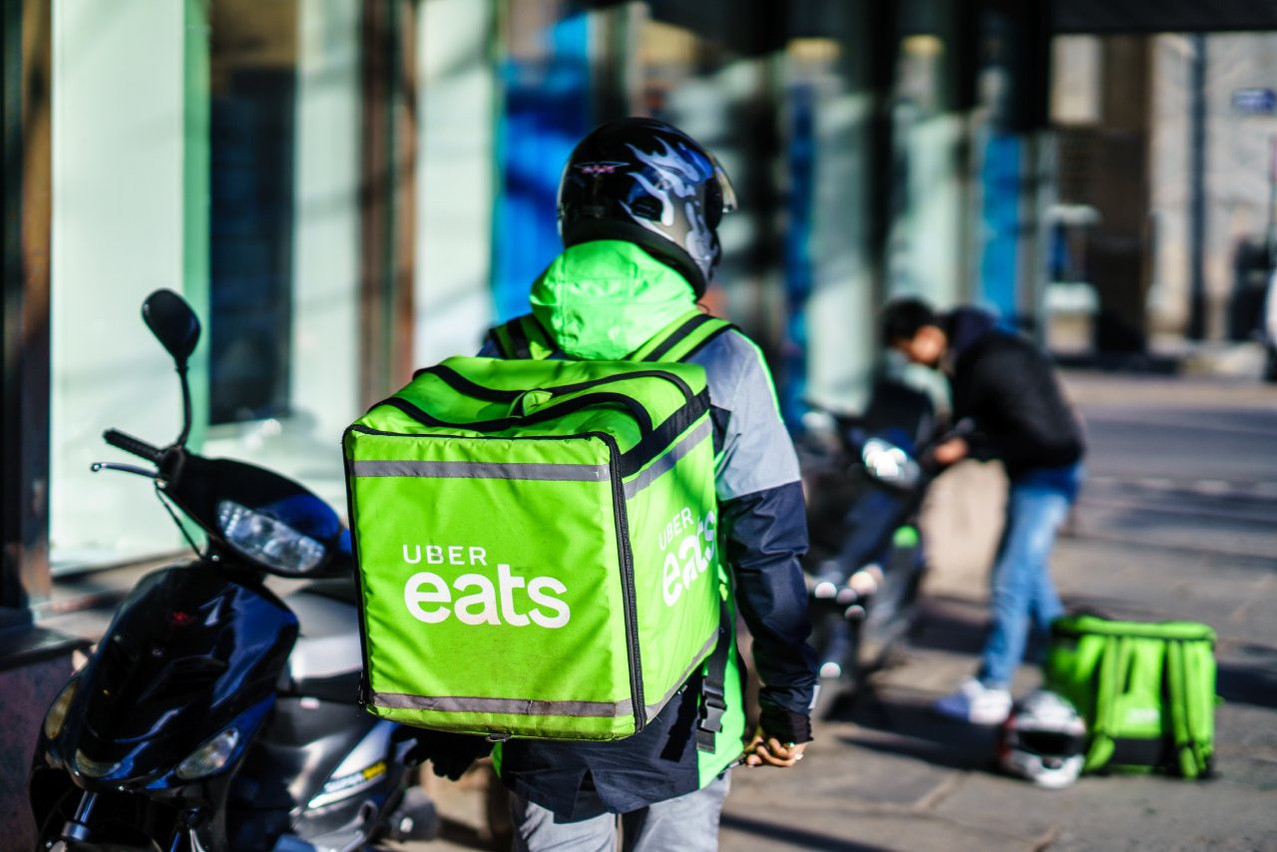Wedely, MiamMiam, Goosty… Wolt is not the first delivery platform to sink its fangs into Luxembourg. But has stirred up a recent-ish debate about a very similar foreign company.
Founded just ten years ago by a group of friends in Helsinki, Wolt now boasts over 6,000 employees worldwide. In 2021 it was bought by the American DoorDash, of which it has become a subsidiary, in a deal valued at €7bn. The Scandinavian platform is present in 30 countries, most recently Luxembourg.
But Luxembourg continues to reject Uber, and the question is… why?
Ticking boxes
Wolt registered with the Luxembourg Trade Register last June and has appointed Loren Danesi, 31, as the country’s general manager (also responsible for launching the app here). On 5 January it was granted authorisation to set up.
“In order to obtain such authorisation, a number of preconditions must be met,” explains the economy ministry. “The company carrying on the business activity must appoint at least one natural person, the manager, who must (1) meet the legal conditions of professional good repute required; (2) effectively and continuously carry out the day-to-day management; (3) have a real link with the business (owner or authorised representative entered in its Trade and Companies Register); and (4) have paid all social security contributions and taxes, either in their own name or through a company that they manage or have managed.”
“Wolt has fulfilled these conditions and has therefore obtained an establishment permit,” the ministry concludes, adding: “obtaining an establishment permit does not exempt the companies concerned from complying with labour laws and regulations."
Uber’s roadblock
For some, it’s impossible not to think of the American giant at this juncture: Uber is still disallowed from doing business in the grand duchy while this Finnish rival has had little trouble setting up shop.
The previous government openly stated that exchanges with Uber took place on several occasions. In one of his last speeches on the subject (in 2022), former transport minister (déi Gréng) said on RTL that these talks had come to nothing because of a lack of compromise on areas like social security and taxation. But if the services and business models are comparable, how did Wolt get through?
The explanation lies in something unrelated to the delivery business, which accounts for 100% of Wolt’s services. In a word, taxis. Uber isn’t strictly a “taxi” company, but is rather in the private hire business: the booking of drivers who use their own cars. And this service--core to Uber’s business--poses a threat to Luxembourg’s taxi industry.
Taxis have been weakened in recent years by the covid-19 pandemic and hikes in fuel price: a sector of around 100 licensed companies has lost 10% of its workforce since early 2020, and according to data from Creditreform, 11 bankruptcies have been recorded over the same period. The sector has also been thrown into turmoil by the introduction of free public transport and the rollout of trams in the capital. More turmoil is coming, too: the tram line should reach the airport by the winter of 2024/2025.
It seems that the authorities are happy enough to keep the Californian multinational on the doorstep. Back in 2016, when the first contact with Uber was made, Bausch stated that a “clear and unambiguous distinction must be maintained” between private hires operated by online companies and professional drivers. The aim of doing so, he went on, was to avoid favouring the work of “bogus self-employed people” or accepting “a levelling down” of social standards.
Presently, dialogue with Uber appears to be at a standstill. “We have no news to announce at the moment about possible future operations in Luxembourg,” commented Rick Janse Kok, the company’s communications manager for Northern Europe, by email. “The economy ministry is not in discussion with Uber.”
European action
The EU’s 27 member states are presently at loggerheads over the gig economy and platform workers. On 18 December, during a visit to the Chamber of Deputies, European Commissioner welcomed the agreement on a directive designed to provide better protection for the 28m self-employed workers in the EU, more than a quarter of whom lack access to social security cover. A few days later, however, the fragile consensus between member states was shattered when tensions emerged around the “legal presumption of salaried status” mechanism: the directive aims to reclassify “false” self-employed workers as employees.
This delay is not to the liking of Luxembourg trade unions the OGBL and LCGB, whose Joint European Secretariat (Secec) issued a press release on 21 February calling on ’s (CSV) government to urgently look into a draft law drawn up in 2020 by the Chamber of Employees (CSL). The draft law aims to create a national framework for the protection of social rights and working conditions.
The present government’s coalition agreement does address the matter: “Chauffeur-driven hire cars (VLC), such as Uber and similar services, will be authorised in Luxembourg provided that the drivers have a licence and that they benefit from social security cover and protection under labour law.”
This article in Paperjam. It has been translated and edited for Delano.
